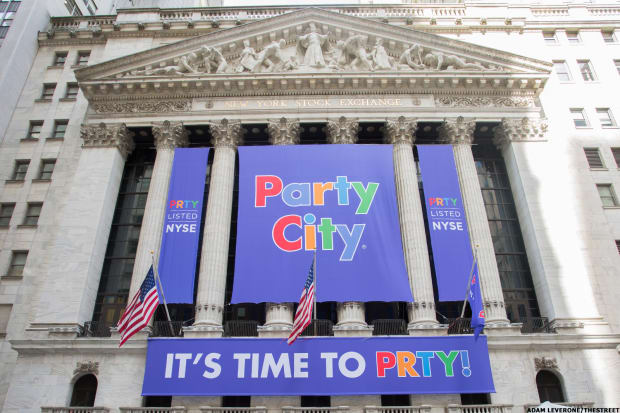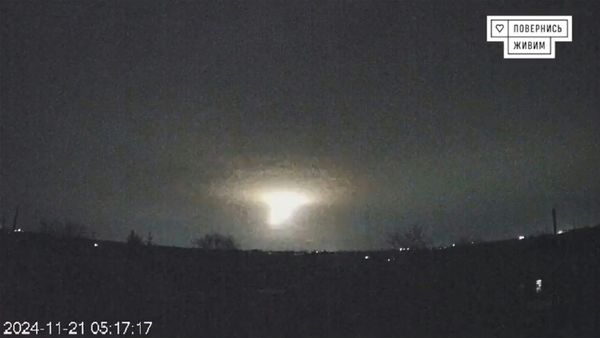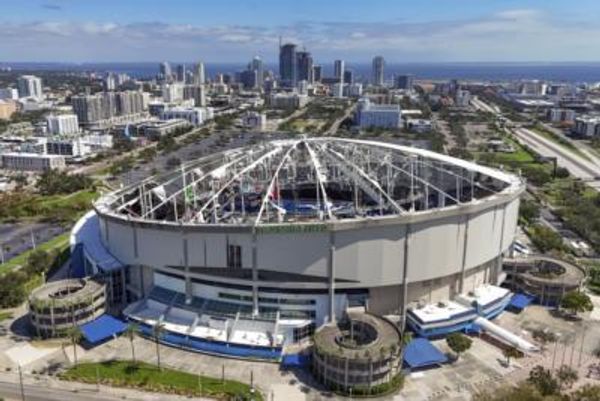
Ever since the mid-80s, if you wanted to have anything from a birthday party for your kids to a New Year's Eve bash complete with silly hats and those little champagne bottles everyone likes to pop, you likely drove to your local Party City (PRTY).
The retailer saw an opportunity back then in offering the largest selection of consumer goods dedicated to parties and celebrations, and historically it has paid off. It has more than 700 stores across the U.S., giving it the honor of being the largest party-centric store in North America.
That said, the covid pandemic was not kind to a retailer that sold products specifically for social gatherings. The company's revenue plummeted by 21% in 2020, and even though it's slowly recovering, it has yet to hit the highs it achieved in the past.
But now Party City has a much bigger problem.

Adam Leverone
Party City Grapples With Stock Price, Sourcing
On Dec. 15, Party City received notification from the New York Stock Exchange that the company is no longer in compliance with its criteria.
Since early November, Party City's stock price dropped below a dollar and has yet to come back up, standing at $0.35 at the time of this writing. The NYSE requires an average closing share price of a minimum of $1 over a 30-day period in order for businesses to remain active on the exchange.
The company has six months to get its stock back above the $1 standard. But, its ticker will gain an added ".BC," which indicates that the stock is currently below compliance.
This comes at a time when Party City has already been in the midst of ongoing struggles. The most recent helium shortage has been a pain point for the company for years, as it's obviously necessary to sell balloons, especially in Q2 for peak graduation season.
The company has been working on large-scale changes since 2020, restructuring its debt after shuttering 45 of its stores in 2019. It also hired Peter Smith as its chief operating officer in November to optimize its supply chain. Smith has 25 years of experience and previously held the role of executive vice president over Carter's supply chain.
Party City is also in talks with creditors to increase its liquidity, according to a recent Bloomberg report.
In the meantime, the brand is still committed to an "aggressive" remodeling of its stores in its next-generation format. During Q1 Party City opened 35 of these locations, totaling 130 stores to date.
CEO Brad Weston addressed these plans in the company's latest earnings call.
"We continue to see strong performance from these stores, which are averaging a mid-single-digit sales increase compared to control stores with a run rate that delivers a payback period on each store of less than 24 months on average," he said.







